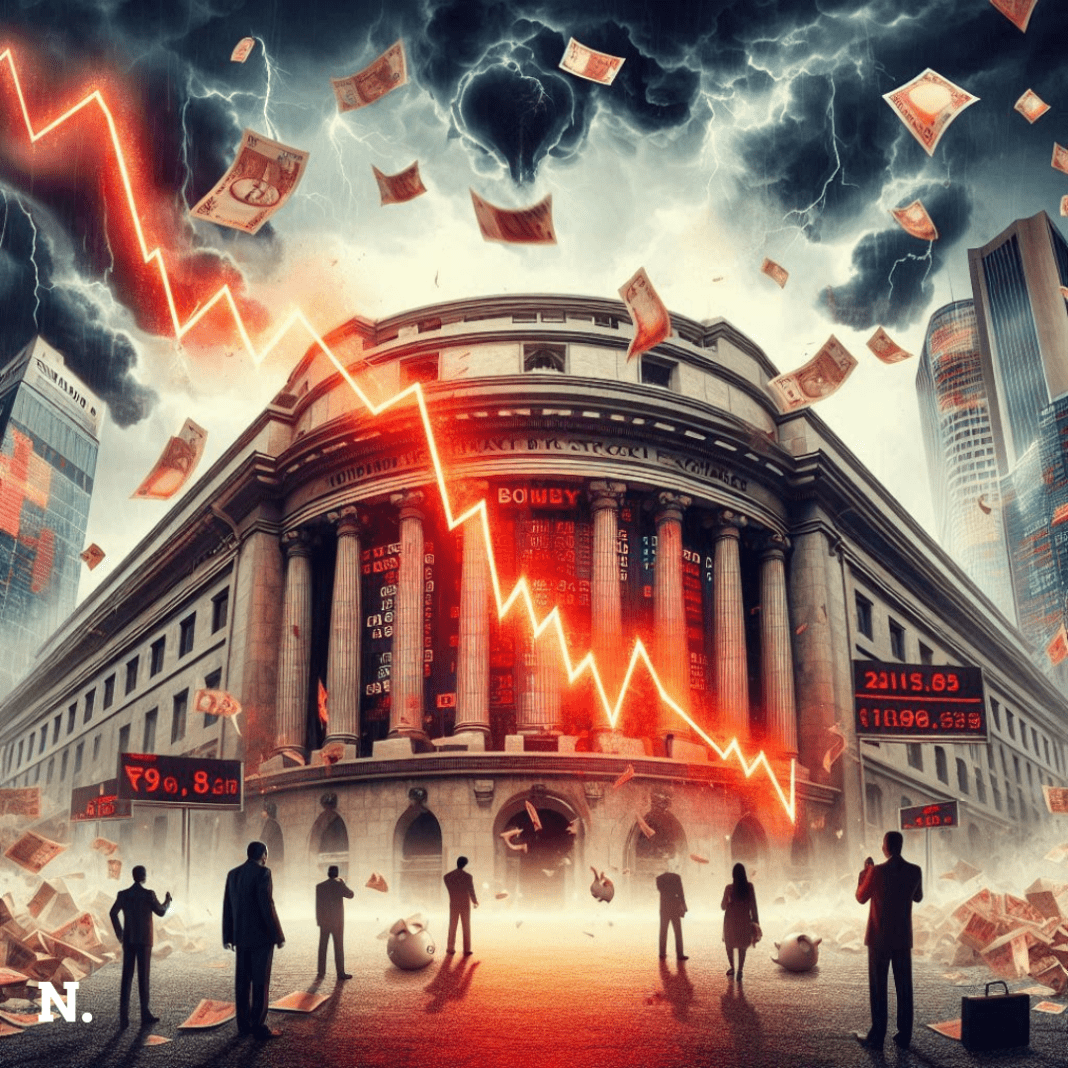What Happened on Monday?
Monday turned out to be a nightmare for the Indian stock markets. It was a day when numbers dropped faster than anyone expected. You may have heard grown-ups say words like “bloodbath” or “Black Monday.” These dramatic phrases were used to describe just how badly the markets fell.
The BSE Sensex, which tracks the top 30 companies on the Bombay Stock Exchange, crashed by 2.95%. That’s almost a 3% drop in just one day. The Nifty 50, another major index that shows how 50 large companies are doing, dropped even more—by 3.24%.
This fall wiped out ₹14 lakh crore from the market. To understand how big that number is—imagine every single person in India losing ₹10,000 on the same day. That’s how massive the damage was.
Which Sectors Were Hit the Hardest?
Some sectors in the Indian stock market took a much heavier hit than others during Monday’s sharp fall. The metal sector suffered the most, plunging by 8%. This includes companies involved in producing or using raw materials like steel and aluminum, which are essential to construction and manufacturing industries. The Information Technology sector wasn’t far behind, with a significant drop of 7%. These are firms that deal with software development, coding services, IT consulting, and tech support.
The real estate and automobile sectors also faced major setbacks, each falling by around 5%. Companies in the realty space, including builders and property developers, as well as auto manufacturers, all saw their stock prices tumble. What made the situation even more concerning was that the fall wasn’t limited to large companies. Smaller firms listed in the small-cap index saw a massive drop of 10%, while mid-cap companies were down by 7.3%. This widespread decline shows that the sell-off was broad-based, affecting both big and small investors alike.
Even though experts believe that the direct impact of the newly introduced foreign tariffs on India might be minimal, the global panic and uncertainty surrounding them had a ripple effect on the Indian markets. Analysts warned that if the world’s largest economy enters a slowdown, Indian businesses could feel the impact too. This could lead to lower corporate profits, and in that case, the Nifty index might drop further to around 21,500 points.
Reflecting the seriousness of the situation, one major international financial institution revised its growth forecast for India. Originally expected to grow at 6.3%, the projection was lowered to 6.1%, showing that the market shock had triggered concerns about the broader economic outlook as well.
Cyber Attacks on Connected Cars
What Caused the Big Fall?
The biggest reason behind this market crash was a new set of import tariffs. These tariffs made it costlier for other countries to trade with the world’s biggest economy. While the announcement of the tariffs happened a few days earlier, the true reaction was felt on Monday when the stock markets opened after the weekend.
The moment investors saw that the tariffs were real and not just words, they panicked. Many people started selling their shares quickly, hoping to avoid losses. This created a selling spree, where more and more investors rushed to get out, pushing prices down further.
Adding fuel to the fire, another big economy responded with its own tariffs. This turned a one-sided decision into a trade war. A trade war is when two countries keep increasing taxes on each other’s goods, making things more expensive and slowing down trade.
Fears of a global economic slowdown made things worse. Some financial experts even said there’s a high chance that the world’s biggest economy could head into a recession. That word—recession—scares markets. It means people spend less, businesses make less, and jobs become fewer.
In India, one more thing made the markets fall. Foreign Portfolio Investors (FPIs)—people or companies from other countries who invest in Indian stocks—started pulling their money out. In April alone, they sold Indian stocks worth ₹13,730 crore. This large-scale exit made things even more unstable.
How Cyber Attacks on Industrial Control Systems Can Endanger Lives ?





